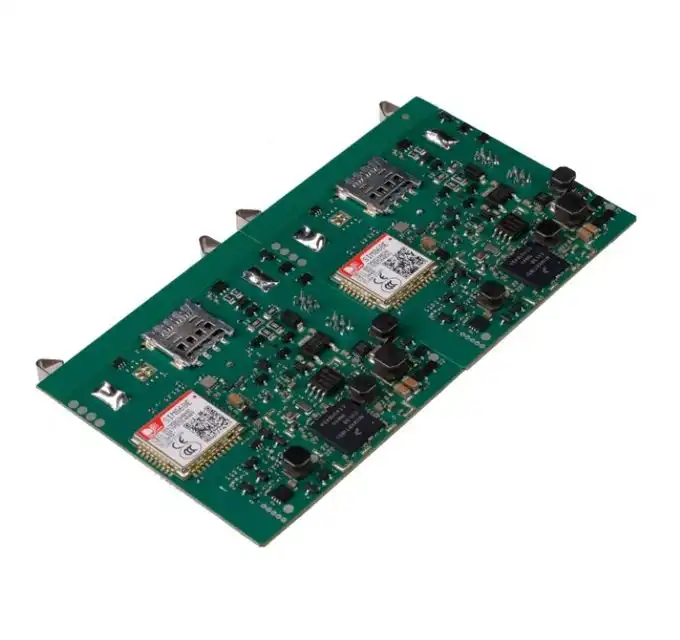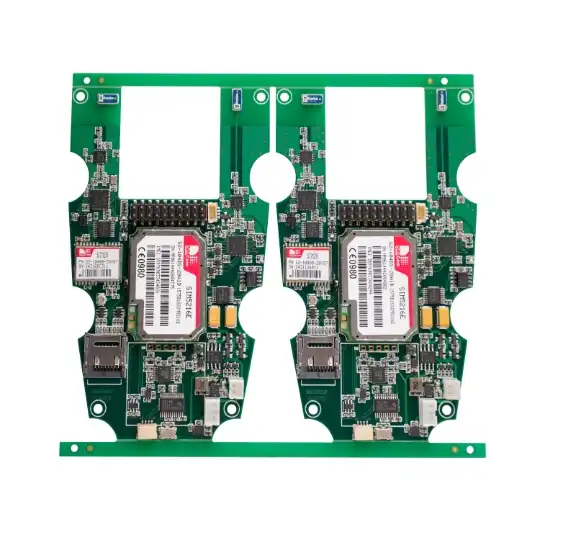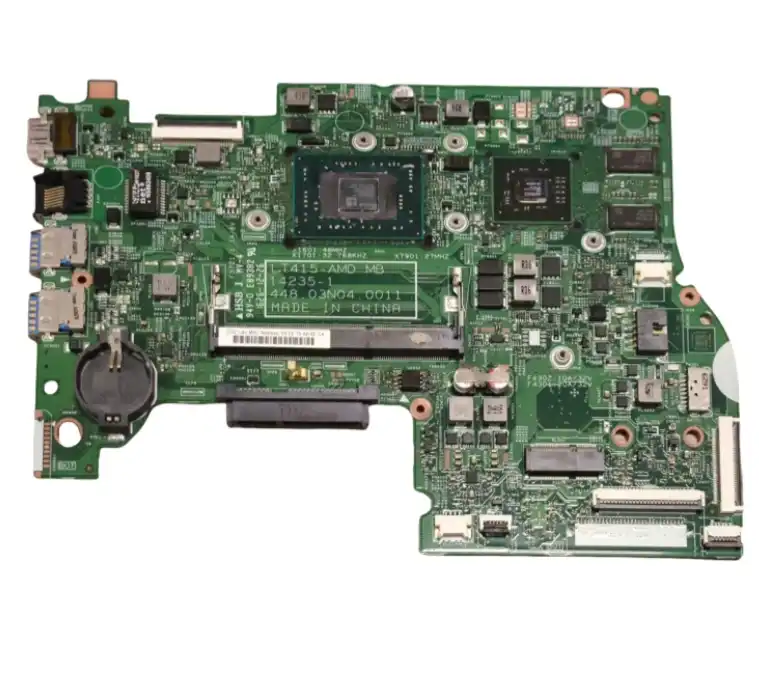Application Fields of Industrial Control PCBA
Industrial control PCBA (Printed Circuit Board Assembly) plays a crucial role in various sectors, powering automation and control systems across diverse industries. These sophisticated assemblies find applications in manufacturing plants, energy management systems, transportation networks, and smart buildings. Industrial PCB assembly is designed to withstand harsh environments, offering reliability and precision in controlling complex machinery, monitoring processes, and optimizing operations. From automotive production lines to oil refineries, these versatile components form the backbone of modern industrial infrastructure, enabling seamless integration of sensors, actuators, and communication interfaces for enhanced efficiency and productivity.

Key Components and Technologies in Industrial Control PCBA
Microcontrollers and Processors
At the heart of industrial control PCBA lies the microcontroller or processor unit. These powerful components serve as the brain of the assembly, executing complex algorithms and managing various control functions. Industrial PCB assemblies often incorporate robust processors capable of handling real-time data processing, multi-tasking, and rapid decision-making. The selection of microcontrollers depends on factors such as processing speed, power consumption, and compatibility with industrial protocols.
Communication Interfaces
Industrial control PCBA relies heavily on efficient communication interfaces to interact with other devices and systems. Common protocols include Modbus, Profibus, and Ether CAT, which enable seamless data exchange between controllers, sensors, and actuators. Ethernet ports, RS-485 connections, and CAN bus interfaces are frequently integrated into industrial PCB assembly to facilitate network connectivity and remote monitoring capabilities.
Sensor Integration
The integration of various sensors is a critical aspect of industrial control PCBA design. These assemblies incorporate interfaces for temperature sensors, pressure transducers, flow meters, and position encoders, among others. Advanced sensor fusion techniques allow for precise monitoring of industrial processes, enabling real-time adjustments and predictive maintenance strategies. The careful selection and placement of sensor components on the PCB layout ensure optimal performance and reliability in challenging industrial environments.
Design Considerations for Industrial Control PCBA
Electromagnetic Compatibility (EMC)
Industrial environments often present significant electromagnetic challenges, making EMC a crucial consideration in industrial PCB assembly design. Engineers must implement robust EMI/EMC protection measures to ensure the reliability and accuracy of control systems. This includes proper grounding techniques, strategic component placement, and the use of shielding materials. By addressing EMC concerns, industrial control PCBA can maintain signal integrity and prevent interference-induced malfunctions in sensitive electronic circuits.
Thermal Management
Effective thermal management is essential for the longevity and performance of industrial control PCBA. High-power components and densely packed circuits generate substantial heat, which must be efficiently dissipated to prevent thermal stress and potential failures. Design strategies may include the use of thermal vias, copper pours, and heat sinks to optimize heat distribution. Advanced cooling solutions, such as forced-air or liquid cooling systems, may be incorporated for particularly demanding applications, ensuring reliable operation in extreme temperature conditions.
Ruggedization and Environmental Protection
Industrial PCB assembly must withstand harsh operating conditions, including vibration, shock, and exposure to contaminants. Ruggedization techniques involve the selection of robust components, the use of conformal coatings, and the implementation of mechanical reinforcements. Designers may opt for specialized PCB materials with enhanced thermal stability and moisture resistance. Enclosure design and IP (Ingress Protection) ratings are carefully considered to protect the PCBA from dust, moisture, and other environmental factors, ensuring long-term reliability in challenging industrial settings.
Emerging Trends in Industrial Control PCBA
Industrial Internet of Things (IIoT) Integration
The rise of the Industrial Internet of Things (IIoT) has significantly impacted the design and functionality of industrial control PCBA. These assemblies now incorporate advanced connectivity features, enabling seamless integration with cloud-based platforms and data analytics systems. IIoT-enabled industrial PCB assemblies facilitate remote monitoring, predictive maintenance, and optimization of industrial processes. The integration of edge computing capabilities allows for local data processing and reduced latency in critical control applications.
AI and Machine Learning Implementation
Artificial Intelligence (AI) and Machine Learning (ML) technologies are increasingly being incorporated into industrial control PCBA designs. These advanced algorithms enable predictive analytics, anomaly detection, and autonomous decision-making in industrial systems. Industrial PCB assembly equipped with AI capabilities can adapt to changing conditions, optimize processes in real-time, and enhance overall system efficiency. The implementation of AI and ML in industrial control applications requires careful consideration of processing power, memory requirements, and data handling capabilities in PCBA design.
Cybersecurity Enhancements
As industrial control systems become more interconnected, cybersecurity has emerged as a critical concern in PCBA design. Industrial PCB assemblies now incorporate advanced security features to protect against cyber threats and unauthorized access. This includes the integration of hardware-based security modules, secure boot processes, and encryption capabilities. Designers must consider the implementation of robust authentication mechanisms and secure communication protocols to safeguard sensitive industrial data and prevent potential system vulnerabilities.
Conclusion
Industrial control PCBA continues to evolve, driven by advancements in technology and the growing demands of modern industrial applications. These sophisticated assemblies play a pivotal role in ensuring the efficiency, reliability, and safety of diverse industrial processes. As the industrial landscape becomes increasingly interconnected and data-driven, the importance of well-designed and optimized industrial PCB assembly cannot be overstated.
Wide-range PCBA solutions for automation & control | Ring PCB
Ring PCB Technology Co., Limited offers comprehensive PCBA solutions for industrial control applications. With 17 years of expertise, we provide high-density stack-up capabilities, smart manufacturing processes, and adherence to stringent industry standards. Our industrial control PCBAs feature high reliability, strong EMI protection, wide operating temperature ranges, and rich interface options.
Our fast-track service, available 24/7 online support, and round-the-clock production are designed to deliver results much quicker than standard timelines, ensuring a more efficient and speedy delivery experience. For businesses seeking cutting-edge solutions in industrial control PCBA, partnering with experienced manufacturers is essential. To explore innovative industrial control PCBA solutions tailored to your specific requirements, contact Ring PCB at [email protected].
References
1. Zhang, L., & Wang, X. (2021). Advanced Design Techniques for Industrial Control PCB Assemblies. Journal of Industrial Electronics, 45(3), 287-302.
2. Johnson, M. R. (2020). EMC Considerations in Industrial PCBA Design. IEEE Transactions on Electromagnetic Compatibility, 62(4), 1125-1137.
3. Singh, A., & Patel, R. (2022). Thermal Management Strategies for High-Performance Industrial Control PCBAs. International Journal of Thermal Sciences, 174, 107430.
4. Lee, S., & Kim, J. (2023). Integration of AI and Machine Learning in Industrial Control PCBA: Challenges and Opportunities. Robotics and Computer-Integrated Manufacturing, 80, 102440.
5. Brown, D. A., & Smith, E. R. (2021). Cybersecurity Enhancements for Industrial Control PCBA in the Era of IIoT. Journal of Industrial Information Integration, 23, 100215.

Welcome to Ring PCB! Share your inquiry, and receive a tailored quotation!

Ring PCB, your trusted partner for PCB & PCBA Full Turnkey Solutions



